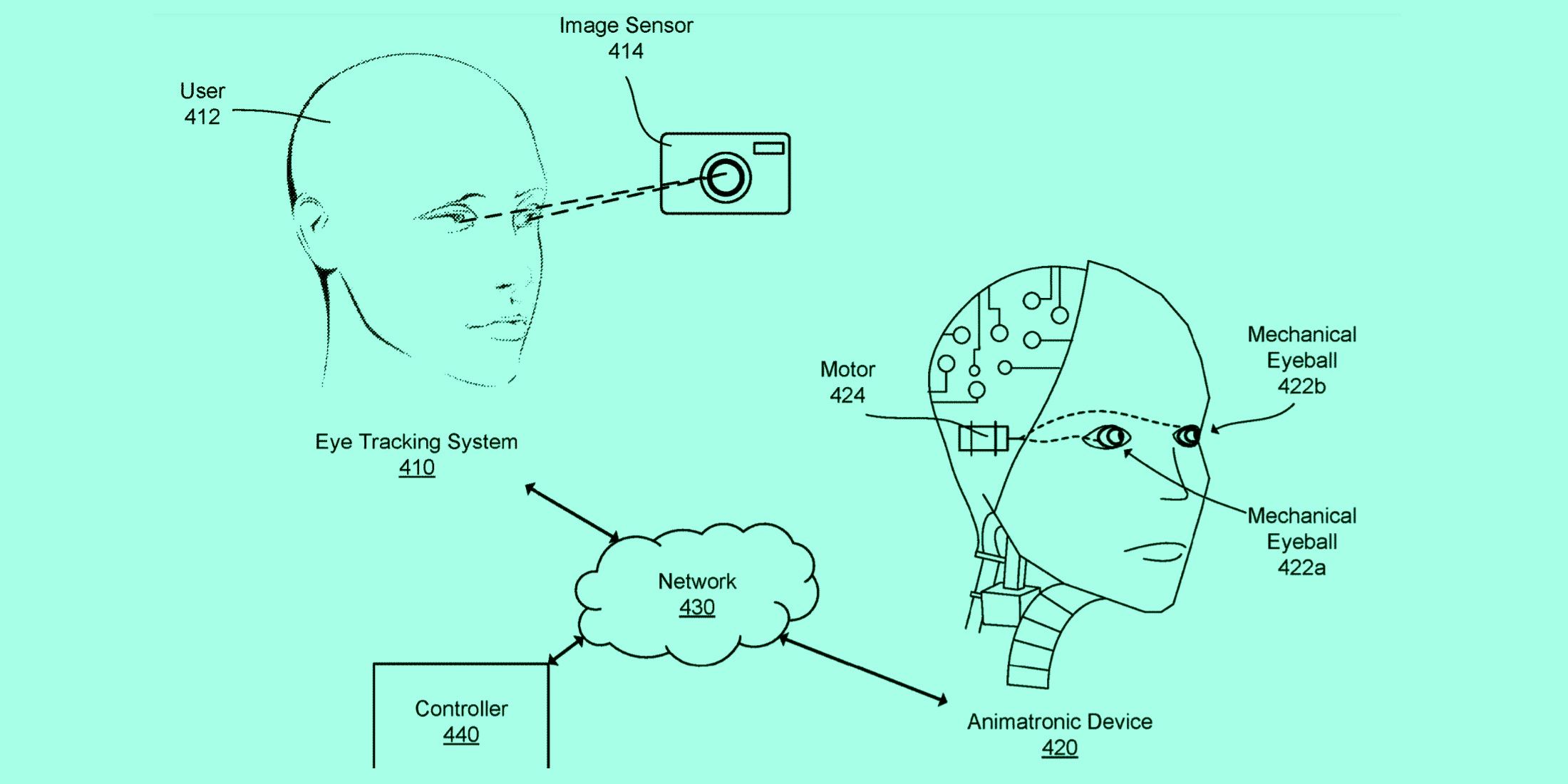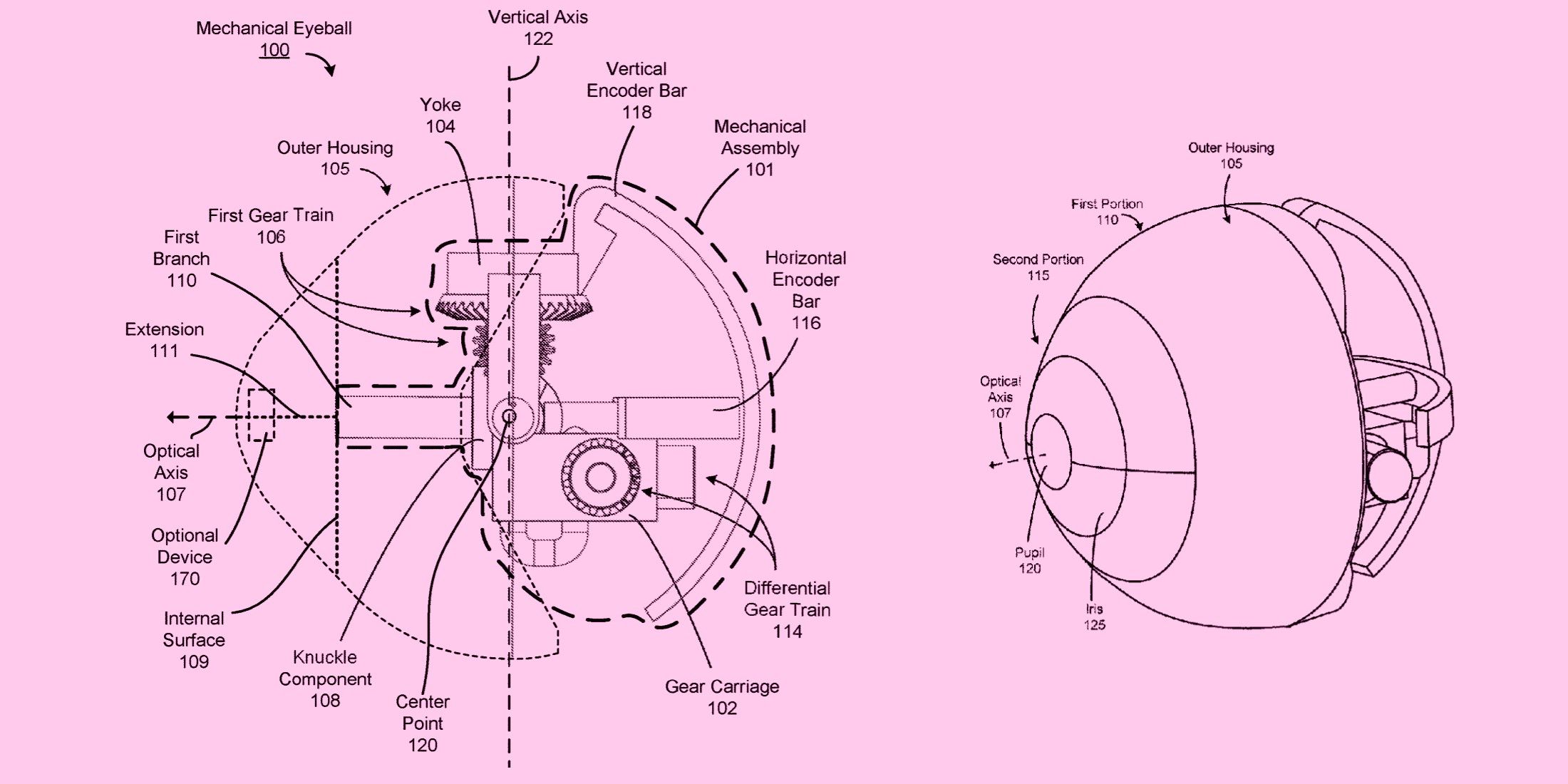Facebook has been deeply-invested in the field of robotics as of late, and one of the company's patents describing a human-like eyeball device covered in a skin-like layer is just another sign of how far ahead the company is thinking. Now, the company is not an alien to such ambitious projects. Just a few months ago, Facebook showcased a thin synthetic skin called ReSkin that is said to be capable of replicating human-level sensations for robotic limbs.
The synthetic skin can detect a force as small as 0.1 Newton on objects as thin as 1mm across, making it possible for robotic parts to handle fragile items without fear of damaging them. For example, imagine a pentadactyl robotic arm toying with an egg or a grape without crushing it to an unrecognizable mush. A few months ago, Facebook also demoed a haptic glove prototype that will let users feel virtual objects in something like Meta's ambitious metaverse.
But it appears that the company is thinking far beyond. A patent titled "Two-Axis Mechanical Rotatable Eyeball" that Insider spotted describes an animatronic eyeball that is nearly the same volume as the human eye, and its external housing is shaped like the outer surface of an actual human eyeball. But the similarities don't end there, as they aim to nail the fundamental design. "The outer housing may have a mostly spherical surface representing a sclera of an eye and a curved surface representing a cornea of an eye. The cornea can include a pupil, where the pupil may be an aperture in the cornea." Readers may recall, Meta is already training its artificial intelligence to view the world around it from the same perspective as a person would.
Thankfully, It's Not Going In Our Skull
So, what purpose would a mechanical eyeball serve? Facebook's patent application notes that such an eye can be fitted in an eye-tracking system. Such tech can be used as a testing ground for advanced augmented reality/virtual reality hardware like the company's own upcoming Project Cambria headset. VR headsets are known to benefit vastly from eye-tracking hardware, and what better way to do some testing and training than creating "a robotic eye designed to resemble an eye." Plus, the mechanical eyeball has a scalable design, which means it can be applied in more areas than just testing and validation of wearable tech destined for the metaverse. But that's not all. Facebook is designing its mechanical eyeball in such a way that it can collect eye-tracking data and relay it to a processing system in real-time, or near real-time.
This opens the doors for minimal lag interactions in an immersive virtual world for VR hardware. But the patent talks about applying the mechanical eyeball in more areas than just "an optical and display system." Robotics systems are also very much on the experimentation table for Meta's eerie tech. In fact, the patent talks about fitting the eyeball on an animatronic device that "includes a skin over mold resembling human skin." That skin could very well be a modified version of ReSkin that can feel not only external stimulus in the form of pressure, but also more human-like traits like temperature and electrical sensitivity. Implementing the learnings and baking them all onto a small chip fitted on next-gen wearable hardware can do wonders. For example, scientists have already developed mask-mounted chips that can track health data from the pressure of blood flowing in facial arteries. With all the billions at its disposal, Meta can truly do some magical stuff here.



